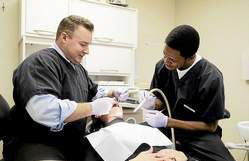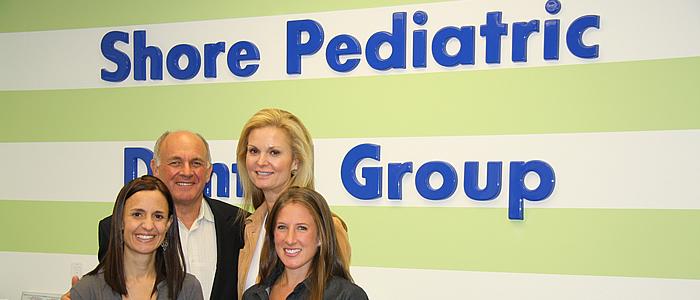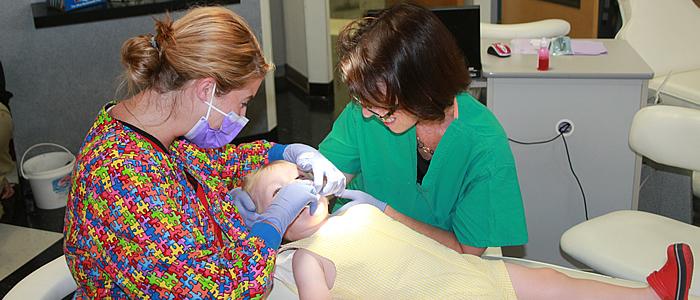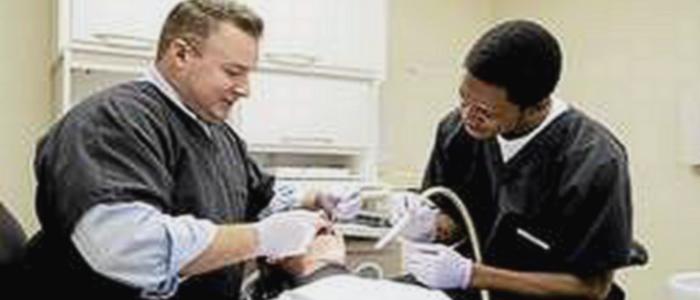
Dental
Exploring Dentistry
Most programs require two semesters of biology (some require an additional course or two in biology), four to five semesters of chemistry (starting with general chemistry and including organic and for a number of schools biochemistry), two semesters of physics, two semesters of English, and up to two semesters of math. Advanced courses can typically substitute for introductory-level courses, but check with the programs that you are interested in. At Skidmore, we recommend the following courses to meet those requirements. ADEA has a summary of the required coursework for all 74 institutions.
Always check for specific course requirements for each school you are going to apply to—this is only a guide!
| Class | Semesters | Skidmore Course(s) | Notes |
|---|---|---|---|
| Chemistry | four semesters with lab typically required, including general and organic chemistry, and, increasingly, biochemistry | CH 125 or 126, CH 221, CH 222,& CH 341 with CH 342 highly recommended |
Must take placement diagnostic. Schools that require two semesters of general chemistry will typically count CH 341 as the second semester (CH 115 does not fulfill the requirement). A number of schools require four semesters of chemistry (often with labs) and a semester of biochemistry without lab. CH 342 is therefore highly recommended with CH 125 (or 126), CH 221, CH 222, and CH 341 in order to have 4 semesters of chemistry with labs on your transcript and a semester of biochemistry without lab. HPAC has a letter it can send to schools regarding the Chemistry curriculum at Skidmore, including the one-semester general chemistry. Please reach out to the individual programs to discuss their specific requirements. |
| General biology | two semesters with lab |
BI 107 & BI 108 |
Note- some schools may require additional biology courses (e.g., for 20 of the 74 schools it is Microbiology & 1 school it is Cell Biology) |
| General physics | two semesters with lab* |
PY 130 & PY 140 |
*must take Calculus I and II to take physics at Skidmore; algebra-based physics would be sufficient |
| English | two semesters | ||
| Math/Stats | up to two semesters* - to take physics at Skidmore, you need to complete or place out of MA 113. | Physics at Skidmore requires calculus (PY 130 has MA 111 as a pre-req, PY 140 has
MA 113 as a pre-req). Check with programs, as some require statistics, others calculus, and a number do not have a specific math requirement. |
Note: some schools still require two semesters of calculus. Also, some schools require
Anatomy & Physiology (BP 126 and HP 127. Check the programs you are applying to).
TESTS
The Dental Admission Test (DAT) is designed to measure general academic ability, comprehension of scientific information, and perceptual ability. Tests are administered year-round at Prometric Test Centers in the United States. You will need to obtain a DENTPIN before taking the DAT. Please plan to schedule your exam at least 60 to 90 days ahead of time. Official scores are reported electronically to the dental schools you select on your DAT application. Additionally, when you select dental schools on your DAT application that participate in a standardized application service, the Department of Testing Services will report your official scores to the application services. At the completion of your testing appointment, you will receive an unofficial score report at the Prometric Testing Center.
Doctor of Dental Surgery (DDS) or Doctor of Dental Medicine (DMD) degrees are accredited by the ADA's Commission on Dental Accreditation (CODA). Programs take four years to complete with additional years for dental specialties. Over 50 dental programs in the United States exist, and admission is competitive. Most U.S. schools accept a single online application through the American Association of Dental Schools Application Service (AADSAS). After completing the degree, students must pass National Board Dental Examinations (Part I and II) to practice in the U.S.


